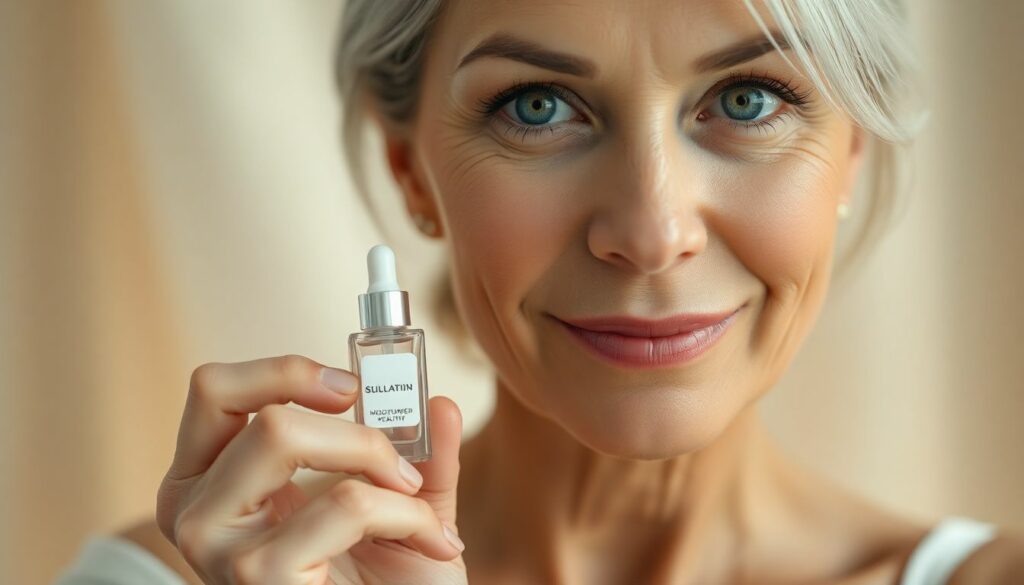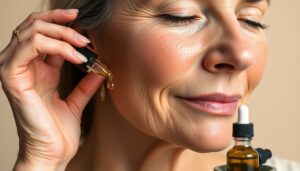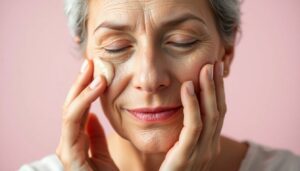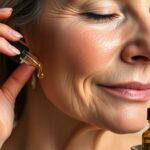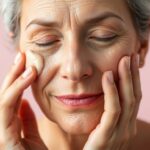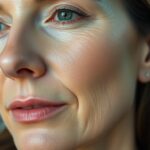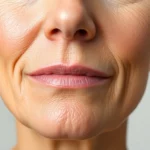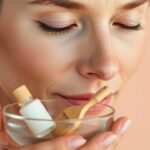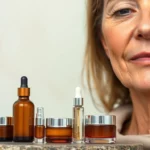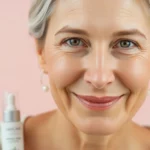Want to eliminate those fine lines and wrinkles? Want to maintain that youthful glow? Our skin loses elasticity as we get older but good skin is still achievable. Selecting the right moisturizer is incredibly essential. That’s a major part of any anti-aging regimen. So how do you go about choosing the best one.
Identifying the Focus Keyphrase in Aging Skin
As we grow older, skin starts to undergo changes. That’s simply a normal part of life. There are many reasons your skin ages. Genetics and lifestyle also contribute, along with sun exposure. Over the years, the skin’s structure collapses. So what, exactly, happens to skin?
How Skin Changes After 40
Collagen production naturally declines after the age of 40. This is the protein that keeps skin firm and bouncy. Cell turnover also decreases. This means that old skin cells are not replaced as quickly. Hormonal changes, such as those during menopause, can also lead to dryness. Damage from the sun and pollution find their way in, aging signs.
Instinctively, your first response would likely be to slather on a burst of moisture and hydration.
And so many women over 40 have the same skin issues. This often causes wrinkles and fine lines. You can also get age spots and uneven skin tone. Dryness is a common complaint. The skin can also become loose and saggy. This is where proper hydration comes into play, as they’re all problems that are addressed with these issues.
The Most Important Ingredients in a Moisturizer
The right ingredients can go a long way. Hyaluronic acid is good for hydration. Retinol helps with wrinkles. Peptides boost collagen. Ceramides fortify the skin barrier. Antioxidants guard against damage. Remember SPF for sun protection!
Best Moisturizer Ingredients for Mature Skin
Let’s examine some of the top ingredients in more depth. Understanding what each does enables you to select wisely. They are like an anti-aging secret weapon.
Hydrators: Glycerin and Hyaluronic Acid
Hyaluronic acid is a water magnet. It draws moisture from the air into your skin. Glycerin does the same thing. Both are awesome at quenching dry, thirsty skin. They make your face soft and pliable.
Retinol and Peptides: Two Anti-Aging Dynamos
Retinol is a type of vitamin A, and it revs up collagen production. This helps decrease wrinkles and smoothen the skin. Peptides are the building blocks of collagen. They signal to your skin to produce more of it.
At first, retinol may cause redness or peeling. Use it slowly, only a few times a week at first. Use a pea-sized amount. Wear sunscreen all the time, because it makes your skin extra sensitive to the sun.
Protect and Repair: Antioxidants and Ceramides
Antioxidants combat free radicals. These harmful molecules break down skin cells. Ceramides are lipids that form a skin barrier They seal moisture in and irritants out.
One potent antioxidant that can give skin a brightening boost is vitamin C. Vitamin E feeds and shields. Green tea extract reduces inflammation. All of these are great add-ins for your moisturizer.
Find the Right Moisturizer for Your Skin Type
Not all skin is the same. You just need to use a moisturizer for your skin. What works for your friend may not work for you. That first one must be the right fit.
Dry Skin: Creamy and Rich Textures
For dry skin, use thick, creamy moisturizers. Ingredients such as shea butter and oils are your allies. Steer clear of products that contain alcohol, which can dry you out. A dense, nourishing cream will moisturize skin all day.
Dry Skin: Lightweight, Hydrating, and Non-Comedogenic Choices
If you have oily skin, you want something lightweight. Formulas in gel or lotion are typically best. Non-comedogenic refers to non-pore-clogging. Avoid heavy oils. Choose oil-free to combat shine.
Sensitive Skin: Use Gentle and Hypoallergenic Products
Sensitive skin requires some extra TLC. Opt for fragrance-free and alcohol-free products. Paraben-free is a good thing, too. Be sure to look for “dermatologist-tested” on the label. These are unlikely to irritate.
Best Moisturizers for Ladies Over 40
How about some recommendations? Here are some excellent moisturizers at various price points. All these are top choices for mature skin.
Neutrogena Hydro Boost Water Gel (Editor’s Choice)
It’s a winner because it’s lightweight but hydrating. It has hyaluronic acid that pulls moisture to the skin. The product works well on most skin types, including oily skin. It soaks in easily and makes skin feel refreshed.
Best Budget Option: CeraVe Moisturizing Cream
CeraVe offers great value. This cream is made with ceramides to help restore the skin barrier. It’s both fragrance-free and non-comedogenic. Many people love it for daily use, particularly people with dry skin or with sensitive skin.
Best Luxury Moisturizer: La Mer Crème de la Mer
This is a splurge, but a lot of people swear by it. This cream is made with a signature “Miracle Broth.” It says it hydrates, smooths and firms skin. Best for: Dry to normal skin types who want heavy hydration.
Complete Anti-Aging Skincare Routine
Moisturizer is just one piece of the puzzle. A complete skincare regimen will produce even better results. You know, it’s kind of like building a house. First you need that solid foundation.
Removing and Scrubbing Prior to Hydrating
Begin with a gentle cleanser to get rid of dirt and makeup. Exfoliate once or twice a week to remove dead skin cells. Mandelic or lactic acids (types of alpha hydroxy acids, or AHAs) or salicylic acid (a type of beta hydroxy acid, or BHA) are also helpful. Do not over-exfoliate, as it can irritate your skin.
Serums and Treatments to Enhance Your Moisturizer’s Efficacy
Serums penetrate your skin with active ingredients. Vitamin C serums — brighten and protect. Hyaluronic acid serums enhance hydration. Wrinkles: Retinol serums Peptide serums boost collagen. Use these prior to your moisturizer.
The No. 1 Anti-Aging Step: Sun Protection
Sunscreen is non-negotiable. Wear it daily, even in overcast weather. Opt for a broad-spectrum SPF 30 or greater sunscreen. Reapply every two hours if you are outside.
Conclusion
Finding the best moisturizer for aging skin over 40 doesn’t have to be tricky. The right product can improve your skin health. Know your skin type. Seek out powerhouse ingredients such as hyaluronic acid, retinol, and peptides. Don’t forget sunscreen! Invest in your skin. Welcome the process of aging with grace.
